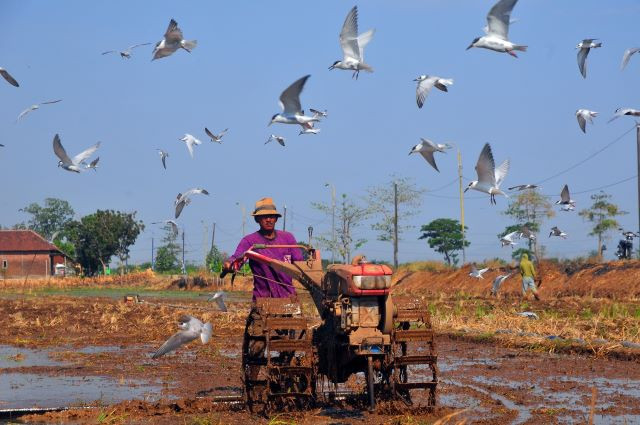Popular Reads
Top Results
Can't find what you're looking for?
View all search resultsPopular Reads
Top Results
Can't find what you're looking for?
View all search resultsUnwholesome food debate
The government has never consistently implemented the comprehensive food security strategy outlined in the 2012 Food Law.
Change text size
Gift Premium Articles
to Anyone

Food and energy, two resources crucial to our national stability, were rightly included on the list of topics for the second vice presidential debate on Sunday.
But on the issue of food, the debate was unenlightening, devoid of meaningful discussion on the fundamental problems of national food security.
The main reason for this was that the single question on the topic selected for discussion, about climate change-induced declines in food production, addressed only a small sliver of the food self-sufficiency pie.
It failed miserably to set off informed debate on the candidates’ broader strategies on food security, a policy goal that has eluded us for the past two decades.
We did not expect highly technical policy details from the candidates, but the fourth debate of the 2024 general election season should have at least allowed the candidates to enlighten the public about their broad strategies to augment our food security.

Our economy remains largely agricultural, but we are still, in the last year of President Joko “Jokowi” Widodo’s second term, the world’s largest importer of rice and a major importer of soybeans, sugar, garlic, corn, beef and fruit, despite the President’s 2014 campaign pledge to achieve national food self-sufficiency in his first term.
The truth is, food security has never been made integral to our agriculture development program, which has been designed improve the economic conditions of farmers and rural communities through advancement in infrastructure and farming technology.
The government has never consistently implemented the comprehensive food security strategy outlined in the 2012 Food Law. While the strategy focuses on pursuing self-sufficiency in five strategic commodities – rice, corn, soybeans, sugar and beef – government policy has long focused chiefly on rice, given its weight in the Indonesian diet. Rice and rice-derived dishes account for about 5 percent of the basket of representative consumer goods that Statistics Indonesia (BPS) uses to assess the consumer price index. Therefore, domestic self-sufficiency in rice production has always been regarded as a barometer for food security as a whole.
But the focus on rice and other staple foods means that calorie sufficiency, rather than nutrition, has become the de facto goal of food security. This undercuts the main purpose of pursuing food security in the first place: to raise public nutrition levels to sustain healthy lives. The high prices and limited availability of fruits, vegetables, meat and dairy have impeded the adoption of more nutritious and diversified diets. The food we produce has not kept up with changes in diet and preferences, especially in urban areas, not to mention nutritional science.
The 2023 Agricultural Census found that the proportion of households in Java managing less than 0.2 hectares of agricultural land rose over the last ten years. As a result, the number of farming households with limited access to land increased by 2.64 million households (18.54 percent) from 14.25 million households in 2013 to some 16.89 million households in 2023. This means about 61 percent of the farming households in Indonesia manage less than 0.5 hectares of land. On Java Island, the heart of the country’s rice production, the proportion is even worse, at more than 80 percent.
Our food security approach must be broadened to address the country’s evolving needs and achieve the comprehensive vision enshrined in the Food Law. The proper agenda will involve moving beyond self-sufficiency in rice and other strategic commodities to a more balanced consideration of food availability, affordability, nutrition and quality for all, especially for the poorest Indonesians.










